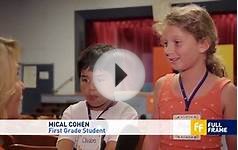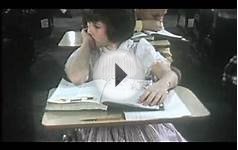 The Turn Around Arts initiative is a terrific thing. It is putting the arts into some of our neediest schools. In the NPR story, “ Creative Classes: An Artful Approach to Improving Performance , ” we read that “Savoy Elementary isn’t trying to turn these students into great artists; ultimately, they’re trying to get them to improve their math and reading.”It is too bad that we always seem to feel the need to justify the arts in our schools by reference to the kinds of non-arts skills that may be learned through the arts. We never justify math by claiming that math education improves reading, much less improves drawing ability! And what about the evidence? Does studying the arts really improve math and reading?
The Turn Around Arts initiative is a terrific thing. It is putting the arts into some of our neediest schools. In the NPR story, “ Creative Classes: An Artful Approach to Improving Performance , ” we read that “Savoy Elementary isn’t trying to turn these students into great artists; ultimately, they’re trying to get them to improve their math and reading.”It is too bad that we always seem to feel the need to justify the arts in our schools by reference to the kinds of non-arts skills that may be learned through the arts. We never justify math by claiming that math education improves reading, much less improves drawing ability! And what about the evidence? Does studying the arts really improve math and reading?
We reviewed the literature on this and showed that there is no good experimental evidence for this claim (Winner & Cooper, 2000). Nonetheless, it is very possible that student achievement will improve in the Turnaround schools. Why might this happen? Because when the arts are infused into schools, kids may enjoy school more, and therefore attendance may go up. In addition, such programs are likely to excite teachers and engage them, thereby making their teaching more passionate. In other words, if the arts improve math and reading, it may well be because the arts improve school culture, and it is the improved school culture that improves math and reading. It is difficult to imagine any kind of direct link between what kids learn in the arts and their skills in math and reading, but this kind of indirect link is plausible.
In addition, such programs are likely to excite teachers and engage them, thereby making their teaching more passionate. In other words, if the arts improve math and reading, it may well be because the arts improve school culture, and it is the improved school culture that improves math and reading. It is difficult to imagine any kind of direct link between what kids learn in the arts and their skills in math and reading, but this kind of indirect link is plausible.
If we look for more specific connections between the arts and non-arts kinds of skills, the experimental evidence for direct links is stronger. For example, for children ages 8-10 who were in the Wheelock Family Theater program in Boston, we showed that a year of training in theater improves both empathy and emotion regulation (Goldstein & Winner, 2012). For adolescents who were majoring in theater at the Walnut Hill School for the Arts in Natick, MA or the Boston Arts Academy in downtown Boston, MA, we showed that participation in the arts improves empathy and understanding of others’ mental states (Goldstein, Tamir & Winner, 2013). This link makes a lot of sense to us. Theater training involves putting yourself in other peoples’ shoes. Doing this is likely to help children to imagine how others would feel, to understand their own emotions, and to imagine how the world seems from different perspectives.
All students should have a chance to study the arts in school, regardless of whether or not the arts have positive side effects.









